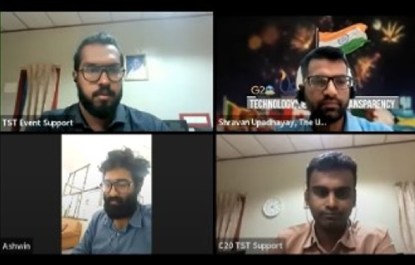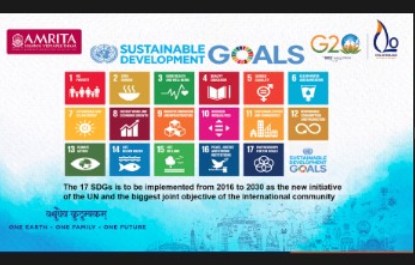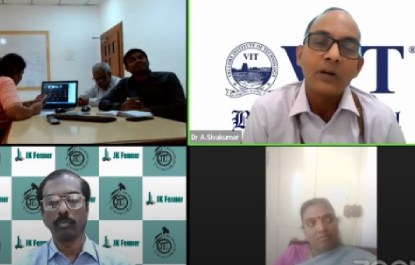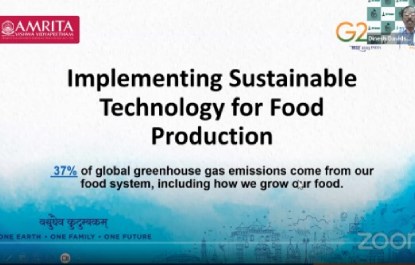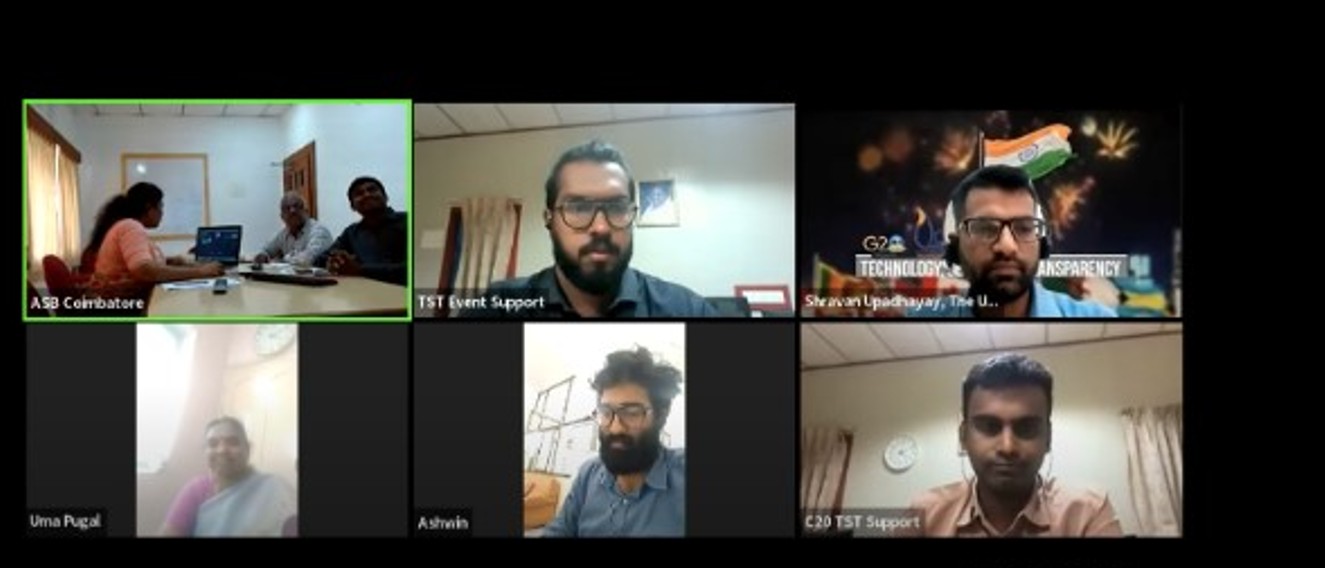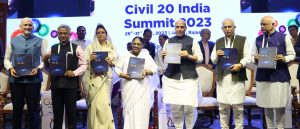The Technology, Security, and Transparency (TST) working group of C20, organized an insightful webinar on Transformational Technologies for Agro-based Industries. The distinguished speakers unanimously emphasized the crucial role of educating and raising awareness on the effective use of technology in farming for the development of agriculture.
Mr.P.G.S. Dinesh Davidson: shared his insights on the importance of implementing sustainable technology for food production. He also highlighted the fact that 37% of global greenhouse gas emissions stem from the food system, including how food is grown, aside from industrial pollution. Mr. Davidson provided valuable recommendations on how to overcome unsustainable patterns in food production, aligned with the United Nations’ goals.
He further stressed the need to focus on eradicating unsustainable consumption and production patterns, which serve as the root cause of triple planetary crises such as climate change, biodiversity loss, and pollution. Mr. Davidson highlighted that seamless integration of production, distribution, and consumption through technology is crucial to avoid problems in demand versus supply and prevent wastage of food. He suggested incorporating IoT, data processing, and AI in the Indian supply chain to reduce communication barriers between supply chains.
Dr. Sivakumar: shared his verdict on the two major dimensions – The affordability in adopting advanced technology, and the awareness of technology (education). He emphasised that any organisation that is looking forward to technology adoption in agro-industries has to pay attention to creating awareness as well.
Dr. P. Uma: emphasized the significance of technology in agripreneurship. She recommended a technology-oriented approach to farming, such as smart farming, as well as collective farming to make it more affordable for farmers. Dr. Uma stressed that the difference between agriculture and agripreneurship is the mindset and explained how academic institutions can contribute to grassroots-level awareness through marketing projects, training programs, collaboration with agriculture officers and NGOs, and various government schemes.
The session concluded with a strong emphasis on the critical role of technology in the agricultural landscape of India, along with the essential measures that can be taken to accelerate the ongoing revolution in this sector.

